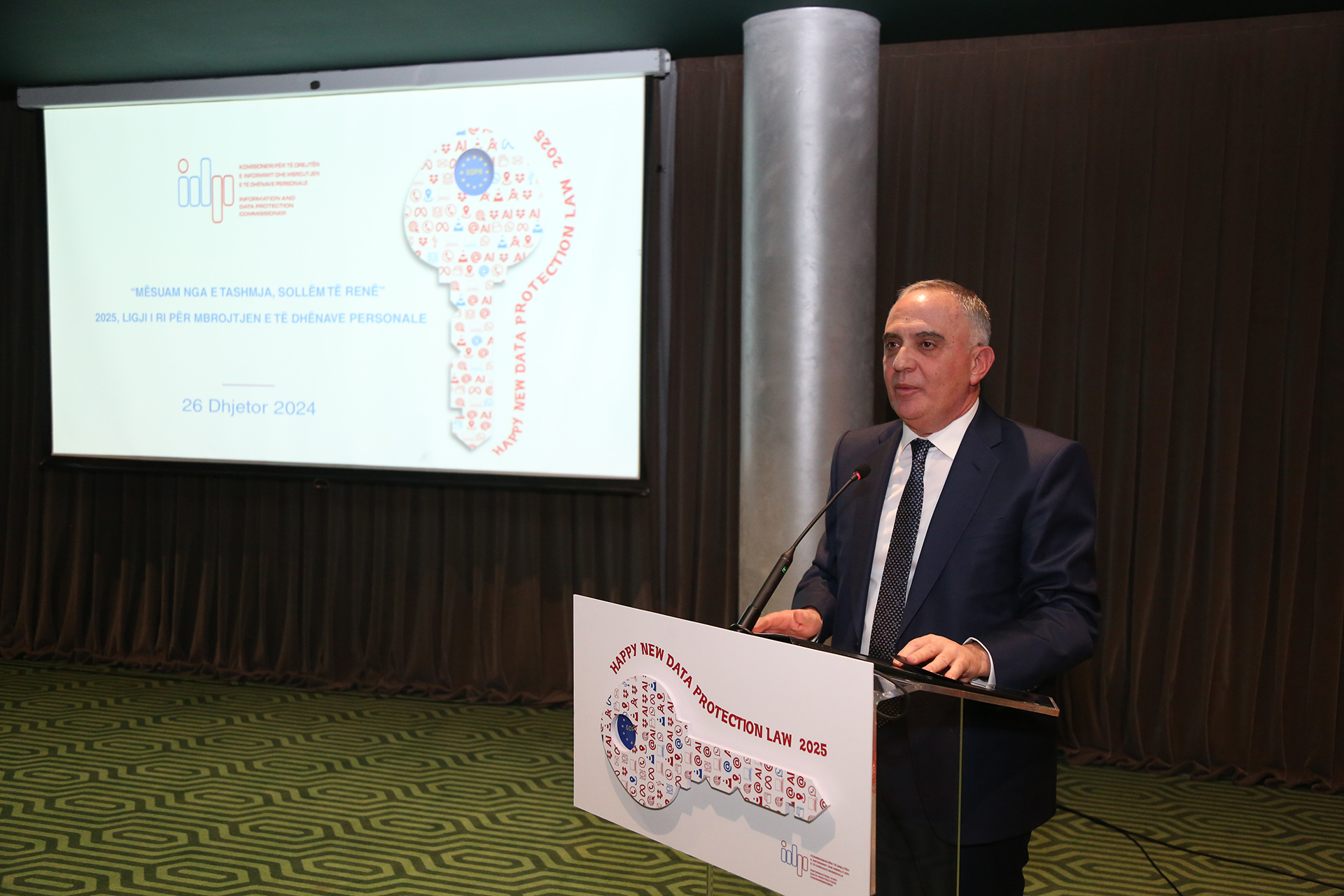The Information and Data Protection Commissioner held a reception in the context of the adoption of the new law on the protection of personal data, which is expected to enter into force in 2025. The meeting was attended by the Minister of Justice, Mr. Ulsi Manja; the Minister of State for Public Administration and Anti-Corruption, Ms. Adea Pirdeni; the Chairman of the Committee on National Security of the Assembly of the Republic of Albania, Mr. Nasip Naço; the Ombudsman, Ms. Erinda Balanca; the Commissioner for Protection from Discrimination, Mr. Robert Gajda, representatives from the Assembly, the Ministry of Justice, experts and collaborators.

In his speech at this ceremony, Commissioner Besnik Dervishi emphasized that: “Today, with the new law on Personal Data Protection, our country has ensured the highest standards, also set out in the EU General Data Protection Regulation, GDPR.“
Mr. Dervishi thanked all stakeholders involved in the process that lasted 4 years, until its finalization, with the adoption of the new law, fully aligned with the EU regulatory framework.

The Minister of Justice, Mr. Ulsi Manja, assessed Commissioner Dervishi’s insistence on pushing the process forward until the adoption of the new law. He said that this law offers guarantees for Albanian citizens, just like for European citizens. It is also an additional guarantee for business. Mr. Manja noted that the implementation of the law is now a challenge and that it should be the responsibility of all institutions and not just the Commissioner.

Minister Pirdeni assessed that the law on personal data protection was one of the most complex and a great merit belongs to the Commissioner’s Office. According to her, the adoption of the law came as a product and synergy of a number of factors that have pushed it forward.

The Chairman of the Security Committee, Mr. Naço, assessed that a good job has been done with the drafting of the law and a lot of energy has been spent to achieve the best possible product, fully aligned with EU legislation.
This law brings innovations that run parallel to technological developments and the digitalization of services, such as: new ways of giving consent; the right to be forgotten; innovative concepts, such as data portability; privacy by design and by default; and provides for stronger sanctions for violations of its provisions. The approximation of the national regulatory framework with that of the EU also consolidates the functions of the Commissioner’s Office to better respond to the challenges and issues of privacy violations and the proper protection of personal data.












